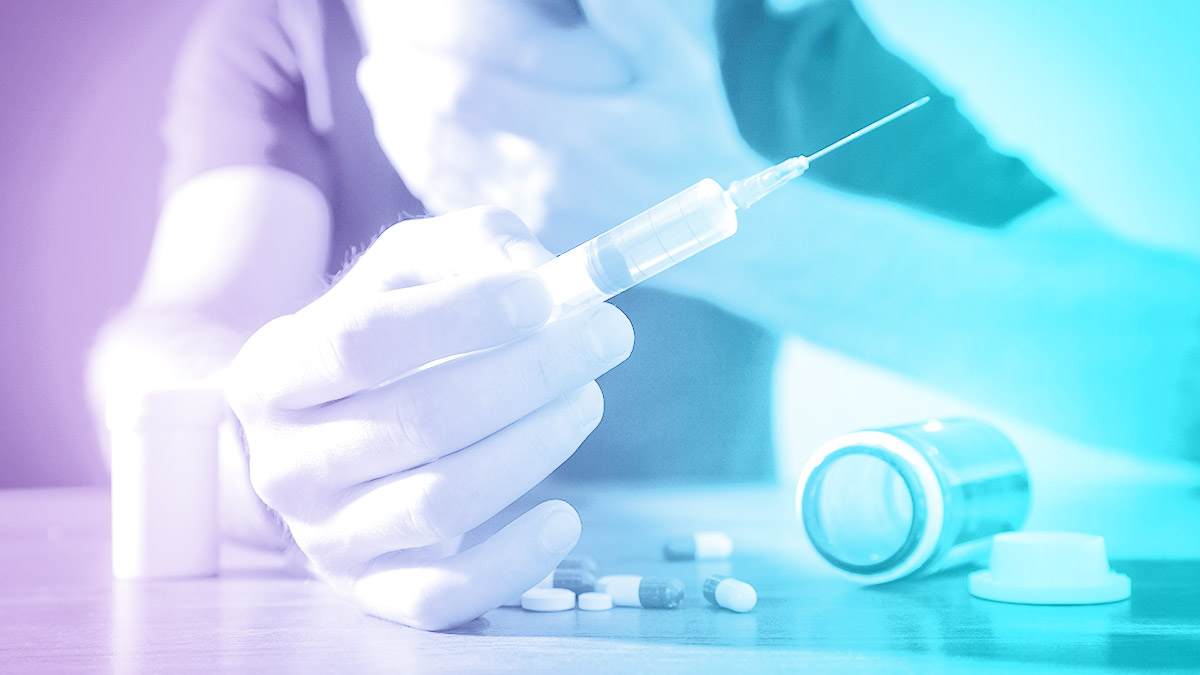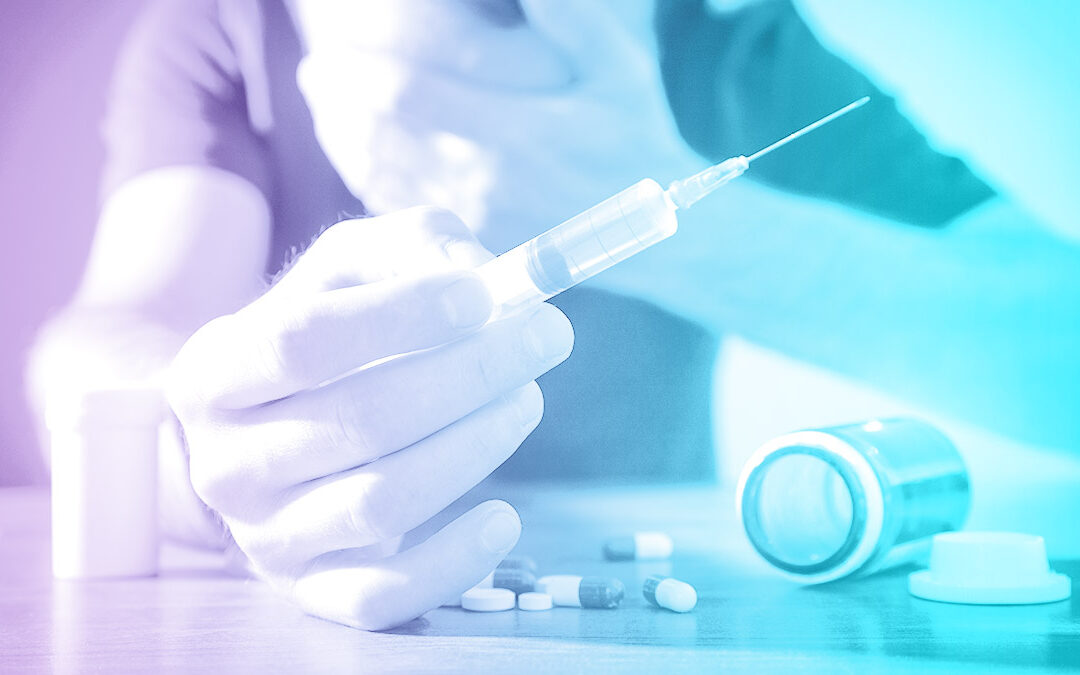Heroin Withdrawals

While emergency room visits for overdose actually decreased by 21% in 2023, 37.5 people per 100,000 died of a drug overdose in Florida in 2021. At Clean Recovery Centers, we understand the dangers of substance use and how withdrawal can keep you going back to heroin. So, what exactly is heroin withdrawal, and what causes it? Let’s explore this further.
What Is Heroin Withdrawal?
First, what is heroin? Heroin is classified as an opioid, made from morphine. Morphine is a natural substance made from the opium poppy plant. The difference is, morphine is FDA-approved and is prescribed by a doctor, while heroin is man-made with no regulations. It is not possible to get heroin through a prescription and therefore it can be different every time you use it. Heroin can come in forms such as white or brown powder. It can also come in a black, tar-like texture. Heroin can be sniffed, injected, or smoked.
Withdrawal happens because the body “gets used to” having heroin in the system. When there is a lack of heroin within the body, the brain, muscles, and digestive system will be most affected. This is why prolonged heroin use can become dangerous – the body begins to need the substance in order to function.
Heroin Use and The Brain
Heroin use can change the structure of the brain physically and chemically. Hormone imbalances can make it hard to stop using heroin and will take time to return to a normal state after discontinued use. White matter decreases, which affects decision-making, behavior regulation, and the ability to respond to stress.
The brain is also responsible for heroin tolerance. As use increases, the opioid receptors in the brain become less responsive. These receptors send out signals that indicate more of the opioid – in this case, heroin – is needed in order to provide the same stimulation.
Heroin Withdrawal Symptoms
Heroin withdrawal only occurs in those who have become physically dependent on it. Heroin is a short-acting opioid, meaning withdrawal symptoms set in anywhere between 8 and 24 hours after the last use. They can range in severity depending on the length of use and the potency of the heroin typically used.
Mild Symptoms of Withdrawal
Some of the mild symptoms of withdrawal include:
- Sweating
- Runny nose
- Increase in tear production (watery eyes)
- Yawning
- Mood swings
- Nausea
These symptoms are usually the first to appear after the last use of heroin. While they can become uncomfortable, they are usually very manageable.
Moderate Symptoms of Withdrawal
Moderate withdrawal symptoms appear as mild symptoms. They include:
- Anxiety
- Agitation
- Muscle aches
- Insomnia
- Chills or goosebumps
While also uncomfortable, these symptoms are manageable and over-the-counter medication can help with pain and discomfort.
Severe Symptoms of Withdrawal
The severe symptoms of withdrawal typically set in within 24-48 hours after last use, but can appear as late as 3-4 days after last use. They include:
- Vomiting
- Diarrhea
- Abdominal cramping
- Dilated pupils
- Muscle cramps or twitching
- Heart pounding
These symptoms are the most uncomfortable and are the leading cause of relapse. A detox facility or inpatient stay may be the next step in order to alleviate withdrawal symptoms.
It is crucial to note that after going through detox, using heroin can be dangerous. Most people think that they can return to the same usage that they did before detox treatment. The body is no longer dependent on heroin, and the brain’s receptors do not need as much in order to “feel” the effects. Overdose is common among those who return to heroin after detox for this reason. If you suspect a heroin overdose, get medical attention immediately.
Heroin Cravings
Heroin cravings are more than just wanting to experience the pleasures of being high. When withdrawal symptoms begin, the urge to use heroin increases. As seen above, withdrawal symptoms can range from mild to severe. As pain and discomfort reach higher levels, heroin cravings become stronger.
How Long Does Withdrawal from Heroin Last
Depending on the length of use, heroin withdrawal can last anywhere from 4 to 10 days. Usually, withdrawal is not life-threatening, but vomiting and diarrhea can cause dehydration, leading to further complications. Seek medical attention if keeping fluids down becomes too difficult.
Heroin Withdrawal Treatment & Medications
Clean Recovery Centers in Florida has a three-phase program for heroin addiction recovery. Our staff of professionals treats heroin withdrawal through our safe and trusted detox, followed by inpatient or outpatient programs to continue to build on the path to recovery.
Heroin Detoxification in the Tampa Area
The first phase of treatment is called preparation. This includes a 24-hour detoxification period which is monitored around the clock both medically and with emotional support. Detox from heroin can be dangerous as withdrawal symptoms can become fatal. We offer medication-assisted treatment during this time to ensure the safety and well-being of the individual while going through this difficult process.
Residential / Inpatient Rehab Services on the Suncoast
There are two stages to our residential treatment program.
Residential One – This is part of phase one of the treatment program. Individuals are in a 24-hour, 7-days-a-week, live-in environment. Medical support is available if needed, but the main focus is on individual, group, and family therapy. The length of stay in this treatment phase is 3-4 weeks.
Residential Two – This is where the transition to phase two happens. Phase two is the action phase, where individuals confront where the addiction started and prepare themselves for independent recovery. At Clean Recovery Centers, this step is referred to as Day/Night Treatment, or DNT. While most clients choose to live in community housing on-site for this phase, it is not required. The program is a minimum of 30 hours of services per week. The four main focuses of DNT include experiential processes, defense mechanism identification, belief system exploration, and symbolic integration. All of these components are to help transition core beliefs and develop balance to a clean life. This phase of treatment typically lasts 2-3 weeks.
Mental Health Path – For those who have been diagnosed with a mental health condition during phase one, the treatment path can change to accommodate those needs first. Clients go into a residential II setting after detox and receive specific treatment for their diagnosis as well as education and medication management.
Outpatient Rehab Services Near Tampa
Phase Three of the treatment process is the maintenance stage. At Clean Recovery Centers, we have two versions of outpatient services, intensive outpatient and outpatient. For intensive outpatient, or IOP, the client can choose to reside in a 24/7 monitored transitional living on-site or at home. The program is 9 hours per week minimum and continues with individual counseling. Outpatient is for those living at home or in sober living off-site and is 2 hours per week. Both services build on the skills learned in inpatient treatment and therapies to continue on the path to living heroin free. The length of stay for phase three is around 6-8 weeks.
If you or someone you love is experiencing heroin withdrawals, help is here in the Suncoast of Florida. Clean Recovery Centers has a full continuum of care from detox to outpatient that can get you on the right track to recovery. Call us today at (888) 330-2532 to hear more about how we can help you get clean, live clean, and stay clean.
FAQs About Heroin Withdrawal
What are the most common symptoms of withdrawing from heroin?
The most common symptoms of withdrawing from heroin include vomiting, diarrhea, muscle aches, abdominal cramping, and sweating.
How long does it take to withdraw from heroin?
Withdrawal from heroin usually begins 8-24 hours after the last use and can last anywhere from 4 to 10 days.
What is heroin withdrawal?
Heroin withdrawal happens because the body “gets used to” having heroin in the system. When there is a lack of heroin within the body, organs, muscles, and joints will be affected. This is why prolonged heroin use can become dangerous – the body begins to need the substance in order to function.



